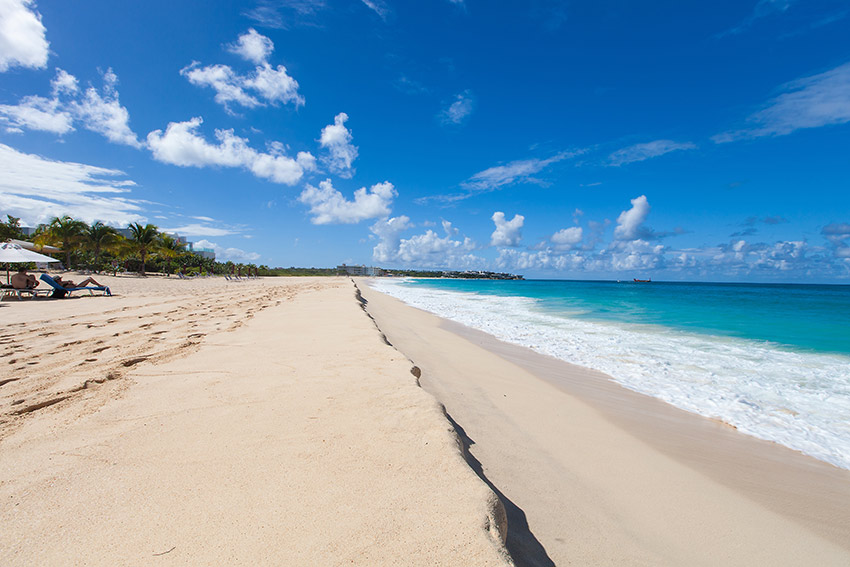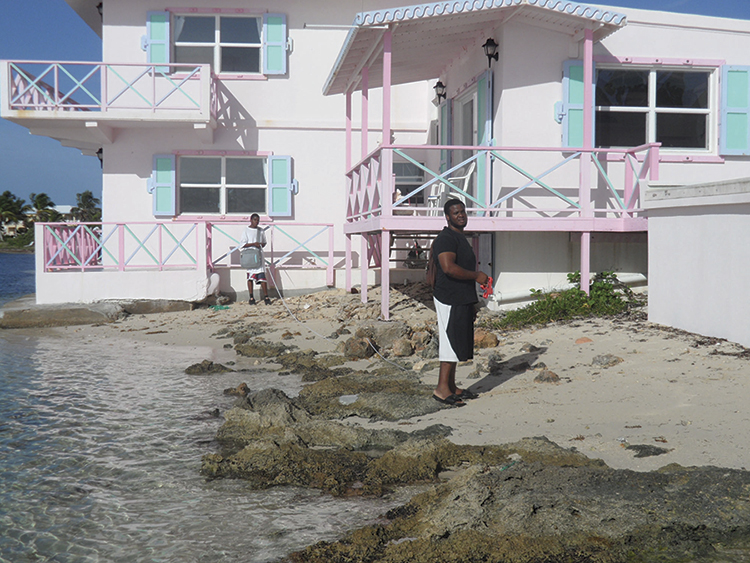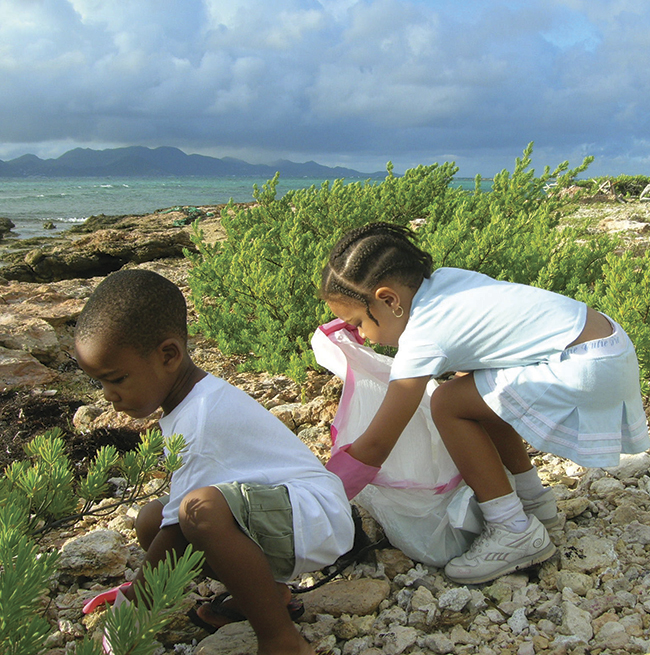Marine & Coastal Conservation
Anguilla’s coastal zone – the interface between marine and terrestrial areas – is characterised by an interconnected system that includes coral reefs, seagrass beds, limited mangrove forests, salt ponds, and predominantly white sand beaches.
As a small island that is only six miles at its widest, it could easily be argued that Anguilla is, in its entirety, coastal and that those ecosystems – the coral reefs, seagrass beds, mangrove forests, and beaches – represent the most immediate transitional water-land border line.
Working together, they help to maintain a delicate balance that keeps Anguilla’s coastal waters and shoreline clean, stocked with fish, lined with white sand, and protected from excessive and destructive wave action, hurricanes, and tropical storms.
ANT’s work within this critical conservation area includes:

Anguilla Sea Turtle Conservation Group and Sea Turtle Monitoring Programme
In 1995, due to lobbying pressure from local organizations such as the Albena Lake Hodge Comprehensive School Environmental and Conservation Club, the Anguilla National Trust, as well as by concerned visitors and residents, the Government of Anguilla placed a moratorium on sea turtle harvesting which prohibited the catch of any turtles or the taking of any eggs for a period of five years.
This moratorium has since been extended twice: for five more years in 2000 and for another fifteen in 2005. This moratorium should allow the severely depleted population a chance to recover and to be properly assessed to determine if their numbers are increasing.
With funds provided by ICRAN (International Coral Reef Action Network), the Anguilla Sea Turtle Conservation Group (ASCG) was established in 2009 as a working group of the National Trust to support the sea turtle monitoring work of the Department of Fisheries and Marine Resources (Government of Anguilla). The ASCG is comprised of dedicated volunteers who collect weekly data on nesting sea turtle activity on Anguilla’s beaches.
Supported by funding from Flora and Fauna International through its Flagship Species Fund (FSF), the ASCG has been able to build its capacity through volunteer training and to build public awareness about the plight of these majestic creatures, the importance of habitat protection, and the role of the public in local sea turtle conservation programmes.
Additional funding from the European Commission’s BEST 2.0 funding mechanism was secured by the Department of Fisheries and Marine Resources, the ANT, and Roehampton University to continue this work.
Contact us to find out how you can become an ASCG volunteer Anguilla Sea Turtle Conservation Group and Sea Turtle Monitoring Programmes.

Coastal Zone Monitoring Programme
With start-up funding provided by Fauna and Flora International’s Flagship Species Fund, the National Trust has launched a coastal zone monitoring programme.
With a focus on beaches and sand dunes, the Anguilla National Trust assesses the state and integrity of Anguilla’s coastal ecosystems. Monitoring activities examine the condition of coastal ecosystems along with the scope and severity of the threats that are placing pressure on these fragile ecosystems. Results of the monitoring exercise are published in a bi-annual Coastal Ecosystems Report Card.
Save the Sand
Save the Sand is a campaign that was established by Denise Carr and Lenox Proctor, the then proprietors of SandBar restaurant, and the Anguilla National Trust. It is an initiative created to raise the awareness of Anguilla’s public about the importance of protecting and preserving Anguilla’s coastal resources, particularly the island’s beaches.
The campaign operates on two fronts: it creates a mechanism for generating funds and acts as a mechanism for the development and execution of an integrated strategy to raise public awareness about Anguilla’s vulnerable coastal resources.
Donate now to spread the message about how destructive sand mining can be and the importance of beach and sand dune conservation.
Coastal Clean-Up Programme
Recognising that Anguilla’s beaches are one of the island’s most important economic resources and in response to requests from the public, the ANT and the Department of Health Protection (Government of Anguilla) launched an Adopt-a-Beach programme: individuals, youth groups, and other organisations and agencies interested in organising a beach clean-up as part of a community service exercise can contact the ANT and we will facilitate the distribution of garbage bags and gloves and the disposal of the garbage.
Contact us to learn more about the programme or to adopt a beach.

 antadmin@axanationaltrust.com
antadmin@axanationaltrust.com  (264) 235-5297
(264) 235-5297